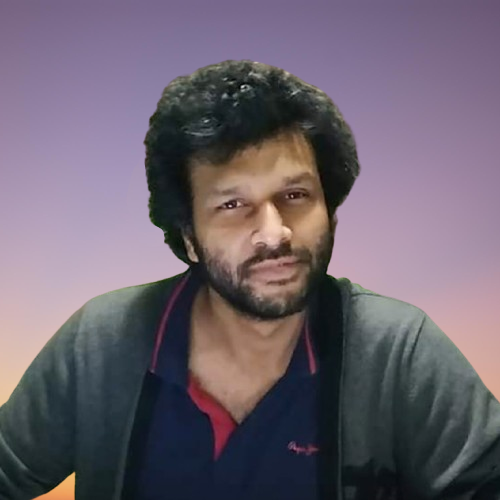Reportage

Outside the usual suspects (politicians), a motley crew of celebrities have jumped on the election bandwagon since the EC's announcement of the schedule for the 11th parliamentary elections, particularly since commencement of the sale of party nomination papers.
Full Bangladeshi citizenship is perhaps the only requisite (if dual, any allegiance other than to Bangladesh must be forfeited to serve as an MP). No party openly discriminates against any particular group or community, and besides, the revenue it generates is almost always marked up at an arbitrary premium, going some way towards replenishing party coffers. The biggest parties have never hesitated to raise this fee for the nomination paper at each election, and this year saw the biggest jump, with ruling Awami League charging Tk 30,000 for each set. The BNP only slightly lower, at Tk 25,000.
As long as the candidates the party looks forward to be involved are able to get their hands on a set (stalwarts often don't even have to buy their own), who is to object? And as long as the parties have a system in place to award the nomination for each constituency to the best candidate - and that almost always would be the one with the best chance of winning - why should anyone bother if other, less worthy nominations are also part of the process? Almost nobody ever has raised a hue-and-cry over this phase of the process.
Till along came Hero Alom, alias Ashraful Alom, a slapstick comedian who is known as an internet sensation in a hilarious way as few of his local music videos and telefilms or 'natok' went viral on social media over the last few years. Ashraful, who hails from Bagura district, has settled in Erulia with his spouse and children.
Recently he bought nomination paper for Jatiya Party for contesting the upcoming national election from Bagura-4 constituency which became talk of the internet again as his decision puzzled many. One in particular got so worked up in her misplaced determination to get to the bottom of it, that it led to quite an embarrassing episode on private satellite TV station Ekattur.
Alongside many famed names including actor Ferdous, actress Shami Kaiser, and singer Kanak Chapa even Bangladesh National Cricket Team skipper Mashrafe Bin Mortaza, the name Hero Alom looks odd according to one polarised view on Social Media.
Appearing on the Ekattur TV show hosted by the preening, self-righteous, and as would soon become clear, utterly clueless Naznin Munni, it was clear from the start that Alom had walked into a premeditated hatchet job. There would be no genuine effort to discern his motivations, good or bad. Nothing of his political views or ambitions, be they selfish or for the people, mattered. The ONLY type of exchange Munni and her producers regarded Alom to be good for was a verbal brawl. And thus her opening gambit was provocation, stressing the dream (for surely it could be nothing else) Alom harboured to enter Parliament.
"Everyone always dreams of something bigger," he started incerely, going on to give examples of India's Prime Minister Narendra Modi who was a tea-seller. "If he did not dream, how could he go on to become the Prime Minister. Men can always dream, what's wrong if I do the same?"
Perhaps not expecting the composure Alom showed, Munni appeared and from there on just embarrassed herself, persisting in the quest to convince her guest of his worthiness. Which clearly wasn't going to happen. She asked him to list his qualifications to become a Member of Parliament. Alom answered cleverly saying, "How many men had the proper qualities for becoming an MP previously? Many of them are accused in several police cases whereas I am clean of any charges at least."
The enemy of the people
His answers sounded arrogant to some, but he was the one under attack by someone clearly unversed in democratic practice. She appeared completely oblivious to the fact that all such questions on her guest's worthiness and qualifications were not for him to answer in the first place. The parties aspiring to represent the people's aspirations, and ultimately the people would be the only authorities fit to face such questions. But she believed her and her social circle's perception of Alom must prevail across all society's stratas and silos.
Despite some negativity and backlash he received, Hero Alom is still holding his head high and his logic holds. Amid all the mockery and jokes, now comes a simple question: Who decides as to who gets to even enter politics in Bangladesh, and the kind of people it is for? Are those with and established platform and a bully-pulpit, say powerful media institutions and figures enjoying name-or-face recognition liable to use their positions to foist their preferences on the population?
No matter how little Hero Alom's political experience or how out-of-whack his appearance, these cannot prohibit him from seeking political capital. Whether we grant him that, or how much, must remain distinctly a choice we make of our own volition, facilitated by democratic exercises. The most vulnerable part of the process to democratic distortion, would seem to be toxic media institutions harbouring agendas not aligned with public interest. And their beguilingly friendly, familiar faces, the front of the shop where smiling presenters apparently fighting the people's corner actually co-opt the choices available to us.


























Leave a Comment
Recent Posts
Auspicious beginnings, but a l ...
The newly elected government of Bangladesh is now in office, and the e ...
Caught between tigers and pira ...
Over 10,000 fishermen in the Sundarbans have suspended their fishing a ...
Historic Chawk Bazar comes alive with iftar items on ..
Shaping Young Conservationists: School Conservation ..
Iran has said it has reached an understanding with t ..
New Finance Minister Amir Khosru Mahmud Chowdhury